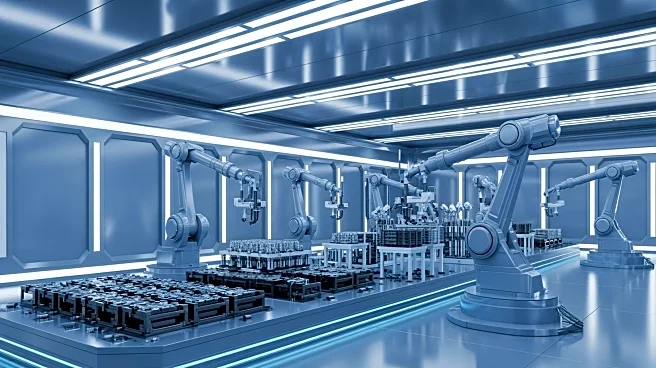What's Happening?
China has unveiled its 15th five-year plan, focusing on technological self-reliance and industrial modernization to address sluggish domestic growth and geopolitical rivalry. The plan aims to boost advanced manufacturing and tech innovation, including
sectors like aerospace, renewable energy, and quantum computing. By reducing dependence on foreign suppliers and investing in domestic companies, China seeks to insulate itself from export controls and enhance national security through military-civil fusion. This strategy is expected to reshape global supply chains and standards, as China aims to replicate its success in green technologies across other high-tech industries.
Why It's Important?
China's push for self-reliance in technology and industry could intensify competition in global markets, affecting manufacturers worldwide. The plan's focus on export-led growth may lead to an increased influx of Chinese products, potentially squeezing manufacturers in countries like Mexico and Europe. This could prompt protective measures from trading partners, exacerbating trade frictions. The strategy also highlights China's ambition to become a tech superpower, challenging the United States and Europe to reindustrialize to avoid overreliance on Beijing. The plan's success could bolster China's claim to great-power status, impacting international economic relations.
What's Next?
China's new five-year plan may lead to increased global competition in high-tech industries, prompting countries to reassess their trade policies and industrial strategies. As China continues to push its industrial output abroad, trading partners may implement protective measures to safeguard their domestic industries. The plan's emphasis on self-reliance and global integration suggests that China will continue to pursue technological dominance while maintaining openness to international trade. The success of this strategy will depend on China's ability to balance industrial growth with domestic demand, which remains a challenge given current economic conditions.
Beyond the Headlines
The plan's focus on military-civil fusion raises ethical and security concerns, as civilian technological advancements are integrated with military needs. This approach may lead to increased scrutiny from international stakeholders concerned about the implications for global security. Additionally, the plan's limited attention to boosting domestic consumption highlights ongoing economic imbalances, which could affect China's long-term growth prospects. The strategy's success will ultimately be judged by its impact on Chinese citizens' incomes and livelihoods, as well as its ability to navigate complex international relations.
















